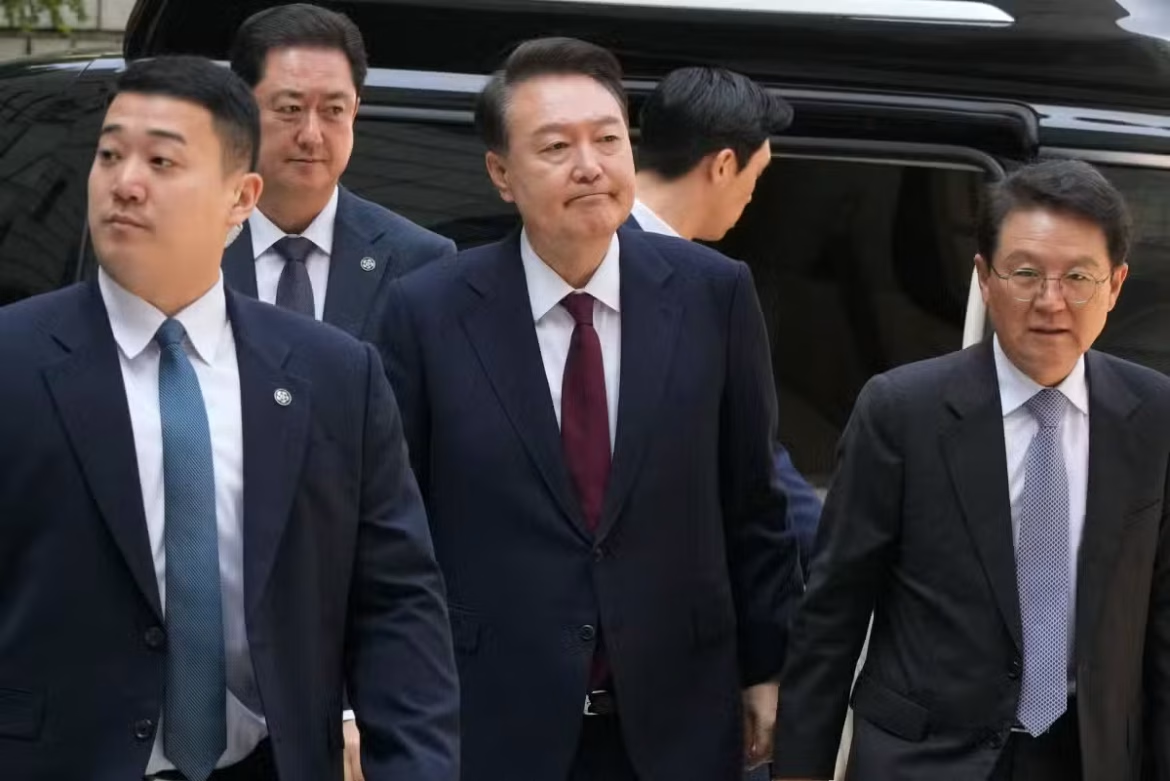Seoul, South Korea — Former President Yoon Suk Yeol, who was impeached and subsequently removed from office last month, returned to court on Monday for a pivotal hearing in his criminal trial on charges of insurrection. The trial, closely watched by international observers and journalists, underscores the gravity of the allegations against him, related to his declaration of martial law aimed at subverting civilian authority.
The charges stem from an incident on December 3, when Yoon allegedly attempted to undermine South Korea’s civilian governance by deploying armed soldiers to the nation’s parliament. This action precipitated his impeachment by lawmakers, marking a significant moment in South Korean politics as it led to his suspension and eventual removal from office.
In January, Yoon made history as the first sitting South Korean head of state to be arrested, although he was subsequently released due to procedural issues. Despite his release, the trial progresses as the court meticulously examines the details surrounding the insurrection charges.
Outside the courthouse in Seoul, a substantial media presence underscored the public interest and high stakes involved in this legal proceeding. The unfolding trial not only assesses Yoon’s actions during his presidency but also reflects broader discussions about democratic processes and the rule of law in South Korea.
As the legal process advances, the court’s decisions will likely influence both the national political landscape and the perception of executive accountability. The trial continues to attract significant attention, given its potential implications for governance and political stability in South Korea.

